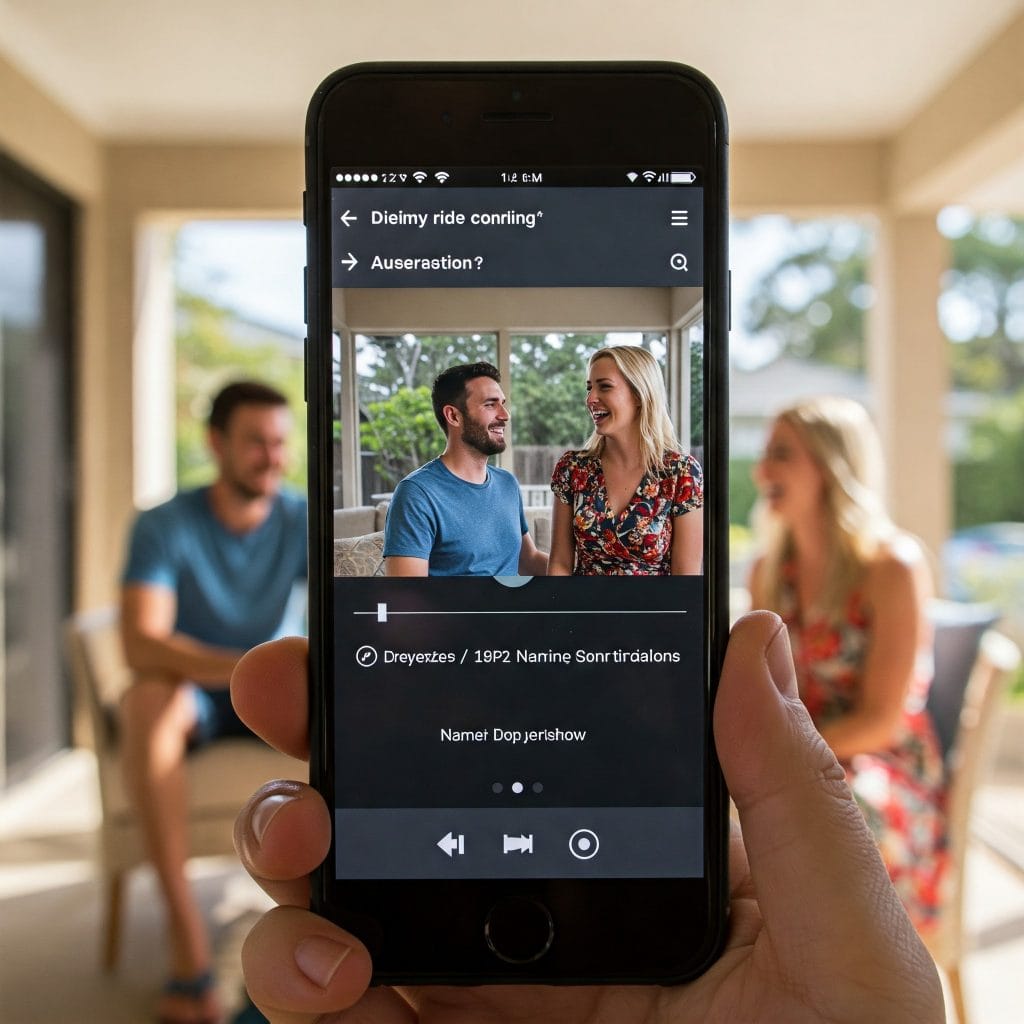Estate planning is about more than wills and inheritance. A binding financial agreement (BFA) can act as a planning [...]
In Queensland, you can record a private conversation if you’re part of it, thanks to the Invasion of Privacy Act 1971. But if you’re not directly involved, it’s a no-go without everyone’s consent. This law keeps your privacy in check, ensuring you don’t fall into legal hot waters. Be mindful, though, recording phone calls and video chats requires everyone’s agreement, crossing into federal territory under the Telecommunications Act 1979. And think twice before sharing that recording; you’ll need a solid legal ground or consent. Mastering these rules opens up a clearer path to navigate these complex waters confidently.
Understanding Legal Boundaries
 In Queensland, you can lawfully record private conversations you’re part of without needing anyone else’s permission, but there are clear legal boundaries to understand. The Invasion of Privacy Act 1971 (Qld) sets these parameters, making sure you’re within your rights as long as you’re an active participant in the conversation. However, it’s illegal to record a discussion you’re not directly involved in without explicit consent from those who are. This distinction is essential for maintaining privacy and respecting the law. Additionally, keep in mind that legal limitations on using recording devices are in place to safeguard individuals’ privacy. Since laws vary by state, always stay informed about local regulations to navigate these legal waters skillfully. Mastery of these nuances guarantees you’re both informed and compliant.
In Queensland, you can lawfully record private conversations you’re part of without needing anyone else’s permission, but there are clear legal boundaries to understand. The Invasion of Privacy Act 1971 (Qld) sets these parameters, making sure you’re within your rights as long as you’re an active participant in the conversation. However, it’s illegal to record a discussion you’re not directly involved in without explicit consent from those who are. This distinction is essential for maintaining privacy and respecting the law. Additionally, keep in mind that legal limitations on using recording devices are in place to safeguard individuals’ privacy. Since laws vary by state, always stay informed about local regulations to navigate these legal waters skillfully. Mastery of these nuances guarantees you’re both informed and compliant.
Private Face-to-Face Conversations
Exploring further, let’s consider the specifics of recording private face-to-face conversations in Queensland, where the law allows participants to do so without requiring consent. Under the Invasion of Privacy Act 1971, you’re permitted to record conversations you’re part of without the other person’s approval. This signifies a significant deviation from regulations in other Australian states, showcasing Queensland’s unique stance. However, it’s crucial to comprehend that while recording is permissible, publishing these recordings requires consent or a strong legal basis. This balance guarantees your right to document interactions while safeguarding against unauthorised dissemination. Mastering this aspect of Queensland’s privacy laws empowers you to navigate conversations with confidence, knowing when and how you can legally record without crossing legal boundaries or ethical lines.
Telephone and Video Restrictions
You’ll find that the Telecommunications Act 1979 sets clear boundaries by outlawing the recording of telephone and video conversations without consent in Queensland. This legislation is not unique to Queensland; it extends across all Australian states and territories, making the unauthorised recording a federal offense. This includes conversations received from any telecommunication systems, emphasising the need for explicit consent before recording. With the rise of teleconferencing, the implications of this law have become increasingly important. It’s essential to understand that these restrictions apply universally, regardless of the setting, including professional environments. As technology evolves, there’s a growing conversation around the potential need to revisit and possibly update these laws to reflect modern communication practices.
Workplace Recording Regulations
Traversing the legal boundaries of recording conversations in the workplace in Queensland requires a clear understanding of consent. You’ll find that while engaging in a conversation might allow you to record it, sharing this recording without everyone’s consent crosses a legal line. Let’s delve into what this means for you and your rights at work.
Legal Boundaries Defined
Understanding Queensland’s workplace recording regulations is crucial if you’re considering documenting conversations at work. Under the Invasion of Privacy Act 1971, you’re legally allowed to record private face-to-face conversations at your workplace without obtaining consent, provided you’re a participant in those conversations. However, it’s critical to remember that you cannot publish these recordings without consent or a valid legal reason. Ignoring this can lead to severe legal repercussions. Legislation varies greatly across Australian jurisdictions, highlighting the importance of understanding Queensland’s specific laws. Be mindful, though, that covertly recording workplace discussions can lead to disciplinary actions or even dismissal. Mastery of these legal boundaries ensures you navigate workplace recording responsibly.
Consent Requirements Explained
While it’s permissible under specific conditions to record workplace conversations you’re part of, it’s also important to know when consent is mandatory. In Queensland, the Invasion of Privacy Act 1971 sets a clear boundary: recording someone in a private conversation at work without their consent is prohibited. You, as an employer or employee, must navigate these legal waters with precision. Covertly capturing these conversations can land you in hot water, ranging from disciplinary action to legal repercussions. Mastery of the specific laws regulating workplace recordings is vital. Understanding that consent isn’t just a courtesy but a legal requirement will safeguard your actions remain within the bounds of the law, safeguarding both your professional integrity and legal standing.
Publishing Recorded Conversations
In Queensland, you’re breaking the law if you publish or share recorded conversations without everyone’s consent, except in specific circumstances like legal matters or protecting a lawful interest. This includes the act of reproducing or copying these conversations, as both fall under the Act’s definition of publishing. You must understand that even if you’ve lawfully recorded a private conversation, you’re still prohibited from sharing it without proper assurance. The law is clear: specific legal reasons are required to distribute these recordings. This guarantees that privacy rights are respected while balancing the need for transparency and accountability in certain circumstances. Mastering these nuances is essential for anyone looking to navigate the legal landscape of recording and publishing conversations in Queensland.

Seeking Legal Advice
Before you consider recording someone without their permission in Queensland, it’s imperative you seek legal advice to navigate the intricate laws. Choosing the right lawyer can make a significant difference in understanding your legal standing and the potential outcomes. Be aware of the legal fees involved, as they’re an essential part of planning your next steps.
Importance of Legal Consultation
Often, consulting a lawyer is your first step to clearly understand the legal landscape of recording someone without their permission in Queensland. Legal consultation offers clarity on the nuanced aspects of the Invasion of Privacy Act 1971 (Qld) and its direct implications for recording private conversations. By engaging with a legal professional, you’re better equipped to discern the significance of your actions in various contexts. Understanding both the potential legal consequences and the specific exceptions inherent in recording without permission is vital. This legal guidance guarantees you navigate the complexities of privacy laws adeptly, maintaining compliance when capturing conversations without consent in Queensland. Without this expert insight, you risk inadvertently violating privacy laws, highlighting the importance of seeking professional legal advice in these matters.
Choosing the Right Lawyer
 After comprehending the significance of legal consultation, it’s time to focus on how to select the right lawyer experienced in privacy and recording laws in Queensland. You’ll want someone who’s not just familiar with but deeply knowledgeable about the Invasion of Privacy Act 1971 (Qld) and its impact on recording conversations. Your ideal lawyer should not only guide you on the legality of recording without permission but also clearly explain the potential repercussions of such actions. They must be adept at advising on the specific legal requirements and exceptions that apply to recording individuals in the state. Choosing a lawyer with this specialised knowledge guarantees you’re well-informed and legally protected in your actions.
After comprehending the significance of legal consultation, it’s time to focus on how to select the right lawyer experienced in privacy and recording laws in Queensland. You’ll want someone who’s not just familiar with but deeply knowledgeable about the Invasion of Privacy Act 1971 (Qld) and its impact on recording conversations. Your ideal lawyer should not only guide you on the legality of recording without permission but also clearly explain the potential repercussions of such actions. They must be adept at advising on the specific legal requirements and exceptions that apply to recording individuals in the state. Choosing a lawyer with this specialised knowledge guarantees you’re well-informed and legally protected in your actions.
Understanding Legal Fees
When seeking legal advice, it is crucial to understand that legal fees can vary greatly depending on the complexity of your case and the experience of the lawyer you choose. Some lawyers may offer free initial consultations or at a reduced rate, providing an opportunity to discuss your case without a significant financial commitment upfront. They typically charge through hourly rates, flat fees, or on a contingency basis, which means they only get paid if you win your case. However, be mindful of additional costs like court fees, expert witness fees, and administrative expenses that can accumulate. By understanding the fee structure and openly discussing payment options with your lawyer, you’ll be better equipped to manage your legal costs effectively, ensuring no surprises down the line.


























